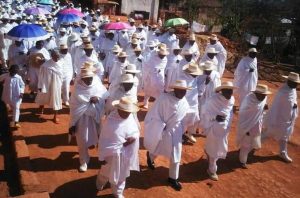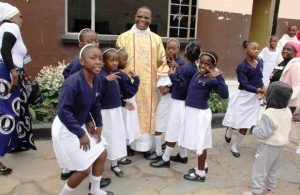Pope Francis has decided the next world Synod of Bishops at the Vatican, which will take place in October 2022, will have the theme: “For a synodal church: Communion, participation and mission.”
“Synodality,” which literally means “walking together,” has become a key topic of Francis’ pontificate, but one which has raised questions and even confusion.
The basic idea in the pope’s teaching is that the grace of baptism makes one part of the body of the church and, therefore, responsible for its life and mission. In a hierarchical church, that shared responsibility calls for regular, serious and structural forums for listening to all members of the church. At the same time, as the pope has said, it does not mean putting decisions to a vote as if a synod were a parliament.
In 2018, the International Theological Commission, which advises the Congregation for the Doctrine of the Faith, published a document on the topic, “Synodality In the Life and Mission of the Church.”
Synodality, which has been present in Christianity since its very beginning, the document said, is not simply about involving people in decision making, but involving all the baptized in discerning God’s will and listening to the Holy Spirit. The goal, it said, always is to find the best ways for every baptized person to fulfil the church’s mission of proclaiming God’s love and salvation in Jesus Christ to the world.
Regarding questions that continue to be raised about the similarities and differences between synodality and a democratic form of church governance, the commission wrote: “A synodal church is a church of participation and co-responsibility. In exercising synodality she is called to give expression to the participation of all, according to each one’s calling, with the authority conferred by Christ on the College of Bishops headed by the pope. Participation is based on the fact that all the faithful are qualified and called to serve each other through the gifts they have all received from the Holy Spirit.” At the same time, it said, “the authority of pastors is a specific gift of the Spirit of Christ the head for the up building of the entire body, not a delegated and representative function of the people.”
Last November Pope Francis told the Vatican Congregation for the Doctrine of the Faith’s theological commission that synodality will be key for the Church in the future. “Synodality is a style, it is a walk together, and it is what the Lord expects from the Church of the third millennium.”
The Synod of Bishops was created in 1965 by Pope Saint Paul VI, who charted the synod to encourage close union between the pope and the world’s bishops and to “insure that direct and real information is provided on questions and situations touching upon the internal action of the Church and its necessary activity in the world of today.”
Ordinary synods happen every three years on issues voted upon by synod delegates elected or appointed from each continent, and from certain Vatican offices. There have been 15 ordinary synods to date. There are also extraordinary synods and special synods. The synod that took place in October 2019 was a special Synod of Bishops for the Pan-Amazonian region.





